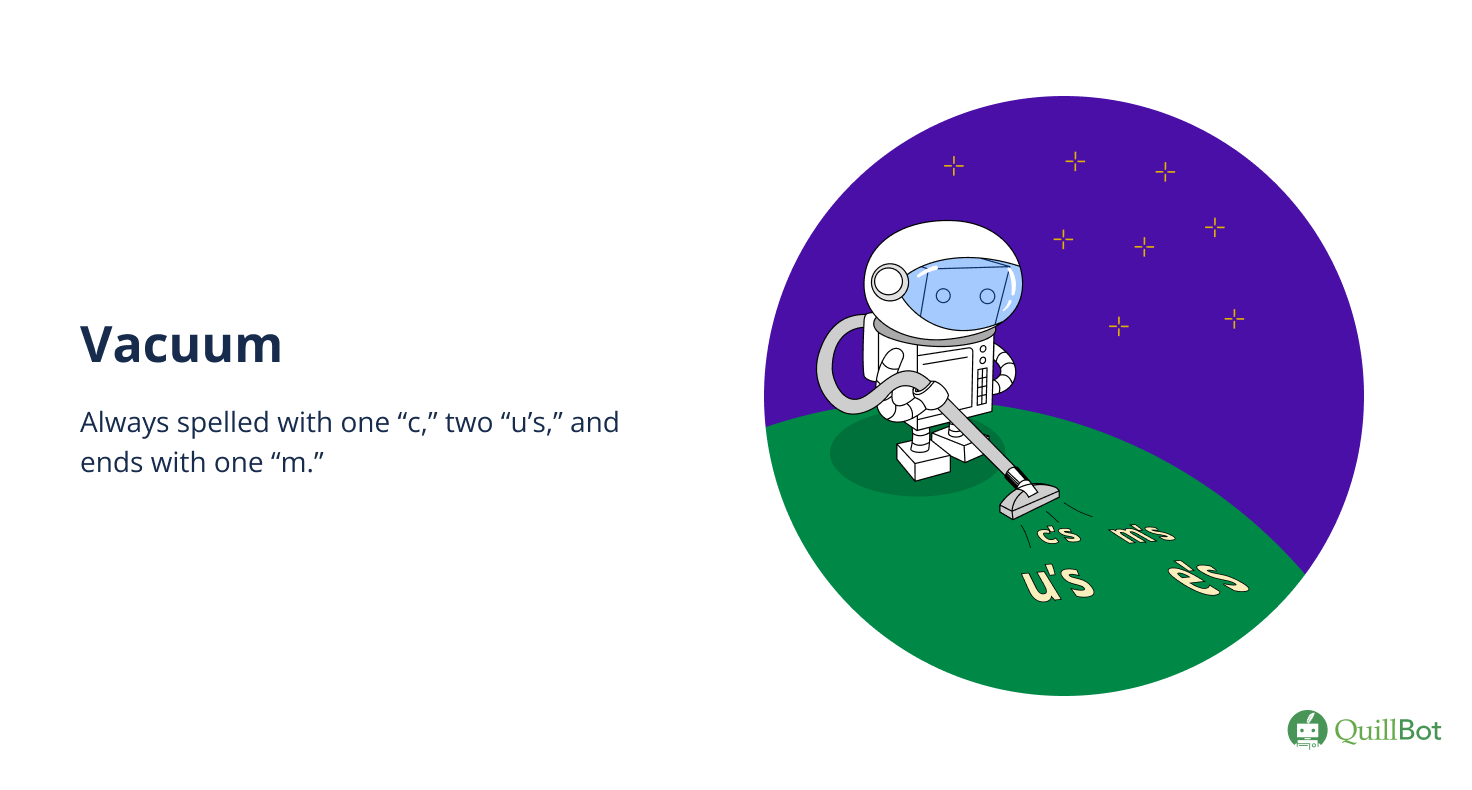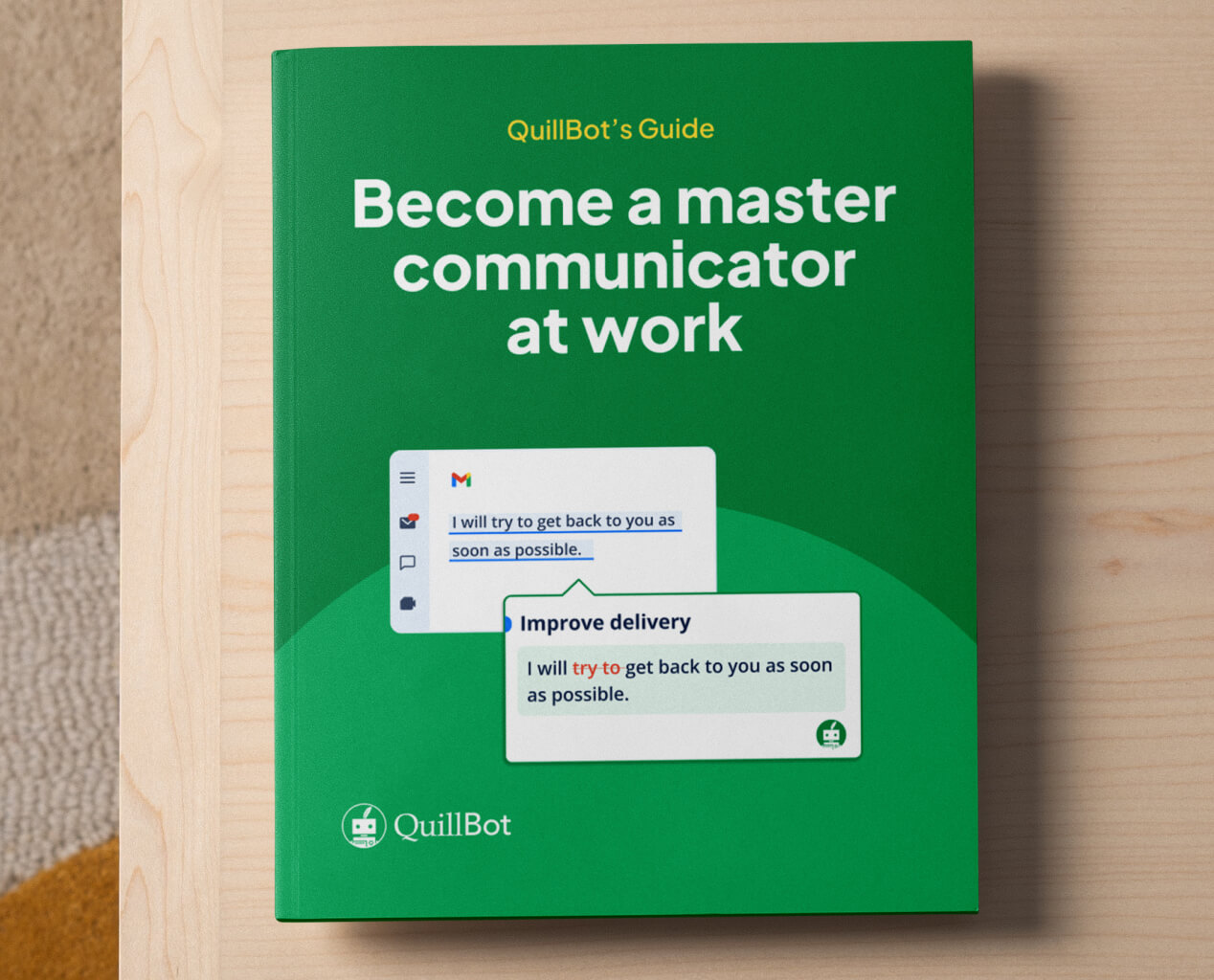How Do You Spell Vacuum? | Definition & Uses
The correct spelling of vacuum includes one “c,” two “u’s,” and ends with an “m.” That means “vacume,” “vaccum,” and “vaccuum” are incorrect spellings. As a noun, “vacuum” refers to a space devoid of matter or a device used for cleaning. As a verb, it refers to the act of using this device.
I’m going to the store to buy a new vacuum cleaner.
My mom asked me to vacuum the house before the guests arrive.
How to spell vacuum
The correct spelling of “vacuum” is v-a-c-u-u-m, regardless of whether the word is being used as a noun or a verb.

There are many common misspellings, including “vacume,” “vaccum,” “vacum,” “vaccume,” and “vacum.” Spelling “vacuum” can be difficult because English words that contain two consecutive “u’s” are uncommon.
- The last thing I have to do before I leave is vacuum the living room.
- Suzie has to vacume, and then she can go play outside.
- I asked Leon if he could vaccum the store for me while I’m gone.
- The sales associate helped me buy the best and most affordable vacum.
- Buying a vaccume is necessary because my dog sheds so much.
Vacuum definition
“Vacuum” can function as both a noun and a verb. As a noun, “vacuum” has a few different meanings. In physics, “vacuum” specifically refers to the emptiness found in space but can also refer to any area that has an absence of matter (e.g., “Scientists remain baffled by the vacuum of space”).
Additionally, the word “vacuum” is sometimes used figuratively to describe a situation where something is entirely missing (e.g., “During the government shutdown, there was a vacuum of power”).
But “vacuum” has a more commonplace meaning, too. It is a shortened version of the compound word “vacuum cleaner,” which is a device that uses suction to clean up dust, dirt, particles, and more from the floor (e.g., “I left the vacuum stored in the garage”).
When the boss resigned unexpectedly, the company found itself in a leadership vacuum.
Lucas experienced a vacuum of guidance and mentorship when his father was deployed.
It sounded ridiculous to many, but all I wanted for Christmas was a good vacuum.
Cooper is terrified of the vacuum because of the loud noise it makes.
As a verb, “vacuum” means “to use a vacuum cleaner to clean” (e.g., “I will vacuum soon”). It’s a regular verb, meaning its past tense and past participle forms are both “vacuumed.” Other forms of “vacuum” include “vacuums” (third-person singular) and “vacuuming” (present participle and gerund).
My roommate’s usual order of chores is to sweep, vacuum, and then mop.
The floor was so dirty that I vacuumed it twice.
My husband was surprised to find our teenage son vacuuming when he got home.
Whenever the cleaning lady vacuums, I have to leave the office.
Other interesting articles
If you want to know more about job applications, research, or language, make sure to check out some of our other articles with explanations and examples.
Job applications
Research
Frequently asked questions about how to spell vacuum
- What is vaccuming?
-
“Vaccuming” is an incorrect spelling of “vacuuming,” which is the present participle form of the verb “vacuum” (e.g., “I was vacuuming when you knocked, so I didn’t hear you”).
- Is it vaccum or vacuum?
-
The correct spelling is “vacuum” (with one “c,” two “u’s,” and ending with the letter “m”). “Vaccum” is a common incorrect spelling of “vacuum.”
Cite this QuillBot article
We encourage the use of reliable sources in all types of writing. You can copy and paste the citation or click the "Cite this article" button to automatically add it to our free Citation Generator.
Rancaño, G. (2025, December 15). How Do You Spell Vacuum? | Definition & Uses. Quillbot. Retrieved February 20, 2026, from https://quillbot.com/blog/common-mistakes/how-do-you-spell-vacuum/

